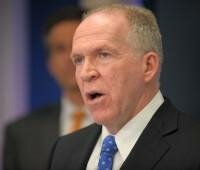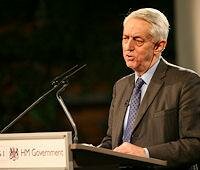Beyond dependence and Legacy: Sustainable Security in Sub-Saharan Africa
Chris Abbott and Thomas Phipps | Oxford Research Group | June 2009
Issues:Competition over resources, Marginalisation
Tag:report
 Sub-Saharan Africa is too readily dismissed from the outside, but the regional perception is often one of optimism. It is an area rich in natural resources: ranging from oil and natural gas to other minerals such as chrome, nickel and zinc. Nearly half the population are under the age of 14, making the region free from the demographic burden of an ageing workforce prevalent in other parts of the world. There are also promising beginnings to regional approaches to tackling shared security problems; with the draft framework for a Common African Defence and Security Policy being a good example of this.
Sub-Saharan Africa is too readily dismissed from the outside, but the regional perception is often one of optimism. It is an area rich in natural resources: ranging from oil and natural gas to other minerals such as chrome, nickel and zinc. Nearly half the population are under the age of 14, making the region free from the demographic burden of an ageing workforce prevalent in other parts of the world. There are also promising beginnings to regional approaches to tackling shared security problems; with the draft framework for a Common African Defence and Security Policy being a good example of this.
However, it is undeniable that sub-Saharan Africa does face considerable difficulties. It contains only 10% of the world's population but is the location of 90% of world malaria cases and home to 67% of world HIV sufferers. Conflict, famine, genocide and disease have all plagued the region over recent decades. Of all the regions of the developing world, sub-Saharan Africa remains the most marginalised and least likely to achieve the Millennium Development Goals. Colonial powers, corrupt leaders and, to an extent, the NGO/aid complex have all contributed to the region's difficulties.
This report is based on the outcomes of a consultation that Oxford Research Group (ORG) and the Institute for Security Studies (ISS) held in South Africa in December 2008. Bringing together security experts, academics, former government officials and civil society leaders from across sub-Saharan Africa, the two-day meeting explored the implications of the sustainable security framework for the region.
Extremist violence often rooted in helplessness, humiliation and hatred - John Brennan
Issues:Global militarisation, Marginalisation
John Brennan, President Obama's senior adviser on counter-terrorism, highlighted the linkages between extremist violence and political, social and economic factors in a speech on 6th August at the Center for Strategic and International Studies, a US think-tank.
Although Brennan identified Al-Qaeda as the biggest threat to US security, much of the speech was devoted to the importance of non-military solutions to the problem of violent extremism: "any comprehensive approach has to also address the upstream factors, the conditions that help fuel violent extremism." Brennan described how part of the current US national security strategy is "a political, economic and social campaign to meet the basic needs and legitimate grievances of ordinary people – security for their communities, education for their children, a job and income for parents and a sense of dignity and worth."
Time will tell how this sentiment will translate into policy. However, increased focus on the route causes of insecurity is certainly welcome.
The full speech can be downloaded here.
Photo: Getty Images
Posted on 8/08/09
A new security paradigm: the military climate link
Issue:Climate change
SustainableSecurity.org Associate Editor Professor Paul Rogers's latest article for openDemocracy highlights the fact that many leading military analysts in the United States are increasingly alert to the link between security and climate change. If, at the same time, these analysts could expand their view of whose security is at risk, the policy consequences could be immense.
Read the full article here.
Posted on 5/08/09
Climate Change and Security in Bangladesh
Issue:Climate change
 This case study explores the potential impact of climate change on security and conflict in Bangladesh. As international researchers have started to make the link between climate change, insecurity and conflict, they have raised concerns that Bangladesh’s extreme vulnerability to the environmental effects of climate change may create conditions that put it at risk of greater insecurity and possible conflict. It is therefore important to analyse this issue in detail, in order to identify how serious the risk is and what can be done to address it.
This case study explores the potential impact of climate change on security and conflict in Bangladesh. As international researchers have started to make the link between climate change, insecurity and conflict, they have raised concerns that Bangladesh’s extreme vulnerability to the environmental effects of climate change may create conditions that put it at risk of greater insecurity and possible conflict. It is therefore important to analyse this issue in detail, in order to identify how serious the risk is and what can be done to address it.
Published by Bangladesh Institute of International and Strategic Studies and Saferworld
Image source: Julie Lindsay
From Within and Without: Sustainable Security in the Middle East and North Africa
Chris Abbott and Sophie Marsden | Oxford Research Group | March 2009
Issues:Climate change, Competition over resources, Global militarisation, Marginalisation
Tag:report
 The Middle East and North Africa is a region of great diversity. It encompasses Arab and many other ethnic populations, theocratic and secular states, democracies and authoritarian regimes. A region of immense wealth and crippling poverty; it is blessed (some might say cursed) with vast resources, not least oil, but has not always proved able to manage them for the benefit of ordinary people. While it is often viewed from the outside as a source of terrorism and conflict, the regional perception is one of foreign occupation and other external interference.
The Middle East and North Africa is a region of great diversity. It encompasses Arab and many other ethnic populations, theocratic and secular states, democracies and authoritarian regimes. A region of immense wealth and crippling poverty; it is blessed (some might say cursed) with vast resources, not least oil, but has not always proved able to manage them for the benefit of ordinary people. While it is often viewed from the outside as a source of terrorism and conflict, the regional perception is one of foreign occupation and other external interference.
This report is based on the outcomes of a consultation that Oxford Research Group (ORG) and the Institute for Peace Studies (IPS) held in Egypt in October 2008. Bringing together security experts, academics, government officials and civil society leaders from across the Middle East and North Africa, the two-day meeting explored the implications of the sustainable security framework for the region.
Global Responses to Global Threats: Sustainable Security for the 21st Century
Chris Abbott, Paul Rogers and John Sloboda | Oxford Research Group | June 2006
Issues:Climate change, Competition over resources, Global militarisation, Marginalisation
Tag:report
 This major report was the result of an 18-month long research project examining the various threats to global security, and sustainable responses to those threats.
This major report was the result of an 18-month long research project examining the various threats to global security, and sustainable responses to those threats.
Current security policies assume international terrorism to be the greatest threat to global security, and attempt to maintain the status quo and control insecurity through the projection of military force. The authors argue that the failure of this approach has been clearly demonstrated during the 'war on terror' and it is distracting governments from the real threats that humanity faces.
Unless urgent action is taken within the next five to ten years, it will be extremely difficult, if not impossible, to avoid a highly unstable global system by the middle years of the century.





